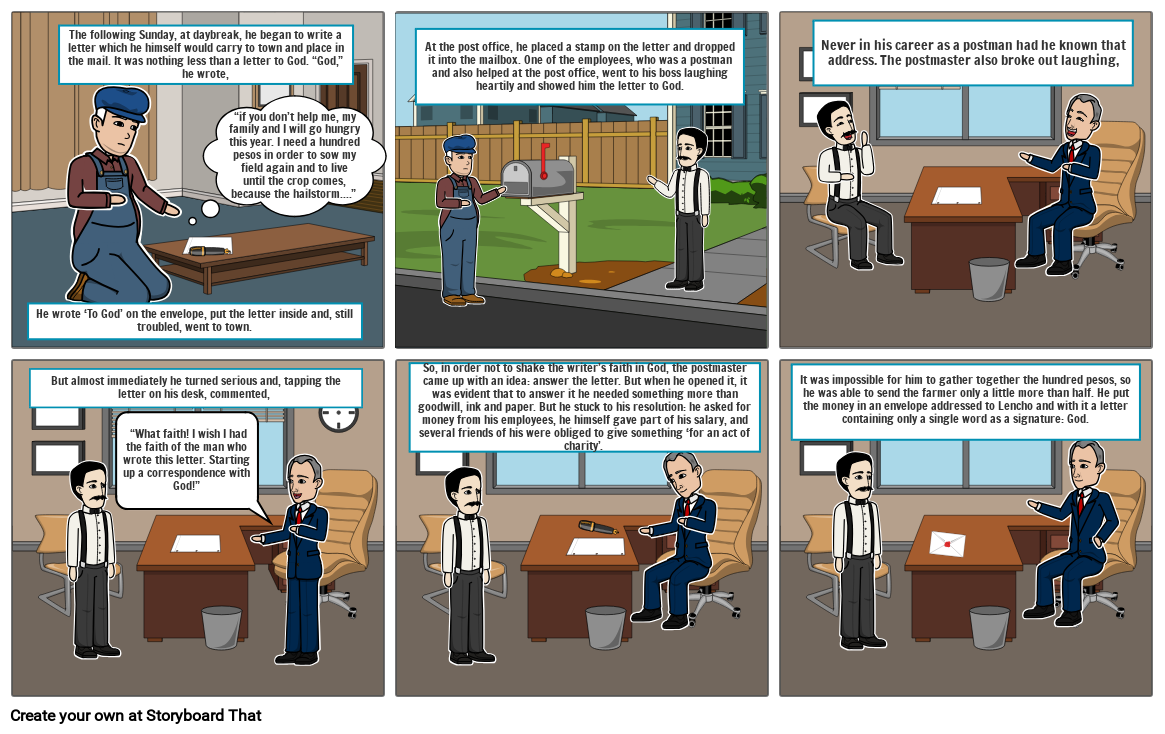A Letter To God

Süžeeskeem Tekst
- Libisema: 1
- The following Sunday, at daybreak, he began to write a letter which he himself would carry to town and place in the mail. It was nothing less than a letter to God. “God,” he wrote,
- “if you don’t help me, my family and I will go hungry this year. I need a hundred pesos in order to sow my field again and to live until the crop comes, because the hailstorm....”
- Libisema: 2
- At the post office, he placed a stamp on the letter and dropped it into the mailbox. One of the employees, who was a postman and also helped at the post office, went to his boss laughing heartily and showed him the letter to God.
- Libisema: 3
- Never in his career as a postman had he known that address. The postmaster also broke out laughing,
- Libisema: 4
- He wrote ‘To God’ on the envelope, put the letter inside and, still troubled, went to town.
- But almost immediately he turned serious and, tapping the letter on his desk, commented,
- “What faith! I wish I had the faith of the man who wrote this letter. Starting up a correspondence with God!”
- Libisema: 5
- So, in order not to shake the writer’s faith in God, the postmaster came up with an idea: answer the letter. But when he opened it, it was evident that to answer it he needed something more than goodwill, ink and paper. But he stuck to his resolution: he asked for money from his employees, he himself gave part of his salary, and several friends of his were obliged to give something ‘for an act of charity’.
- Libisema: 6
- It was impossible for him to gather together the hundred pesos, so he was able to send the farmer only a little more than half. He put the money in an envelope addressed to Lencho and with it a letter containing only a single word as a signature: God.
Loodud üle 30 miljoni süžeeskeemi

